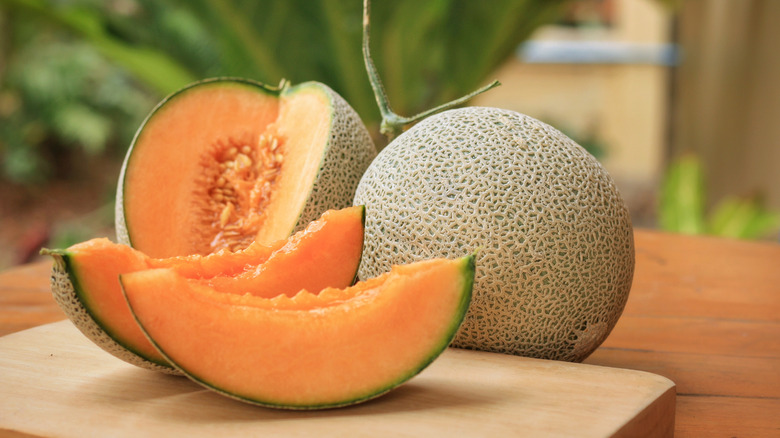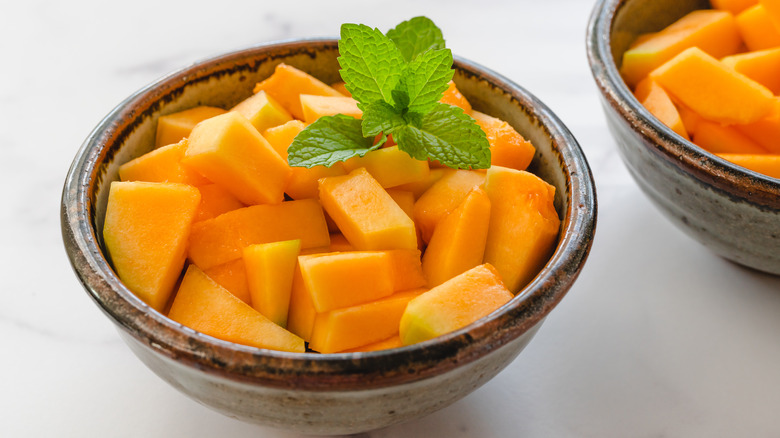How Cantaloupe May Have Killed A Pope
Whether it is spread out on a fruit tray, frozen into popsicles, or just enjoyed on its own, cantaloupe is a great fruity snack. It is believed to have originated in Persia and Western Asia, though several different varieties are now widely grown across North America, Europe, and Asia, per Specialty Produce. The site also notes that summer is the peak growing season, but due to worldwide production, cantaloupe can be imported and enjoyed year round!
Healthline reports that cantaloupe is high in beta-carotene, which gives it that bright orange pigment. After being eaten, it is converted into vitamin A and acts as an antioxidant. It also contains healthy amounts of folate and vitamin C, and has a high water content to help keep you hydrated.
Despite all of the health benefits, there can be too much of a good thing — and cantaloupe was even reportedly linked to the death of a pope.
Death by cantaloupe?
According to Bon Appétit, the story goes that Pope Paul II ate two large melons in one sitting before dying. Though it is not certain if this story is accurate and his exact cause of death is unknown (though many argue, including historian Thomas Henry Dyer, that the pope died of a condition called apoplexy), Pope Paul II was reportedly obsessed with cantaloupes. His chef even published a cookbook in 1470 encouraging people to eat cantaloupe for a pre-meal appetizer (via Fresh City Farms).
While this may not be a common issue, there are a few health risks that can be exacerbated by eating too much cantaloupe. WebMD notes that cantaloupe contains a great amount of potassium, which can help lower blood pressure. The site also notes that you should monitor your potassium intake if you have kidney disease because too much of it could lead to a condition called hyperkalemia, which the Mayo Clinic states is caused by increased potassium levels in the blood.
If you have any preexisting conditions that are affected by fiber intake, WebMD also recommends monitoring your cantaloupe consumption. While cantaloupes are a great source of fiber, too much of it can cause intestinal and digestion issues.
Go ahead and enjoy a few slices as a sweet snack — just resist the urge to eat two whole melons by yourself.

